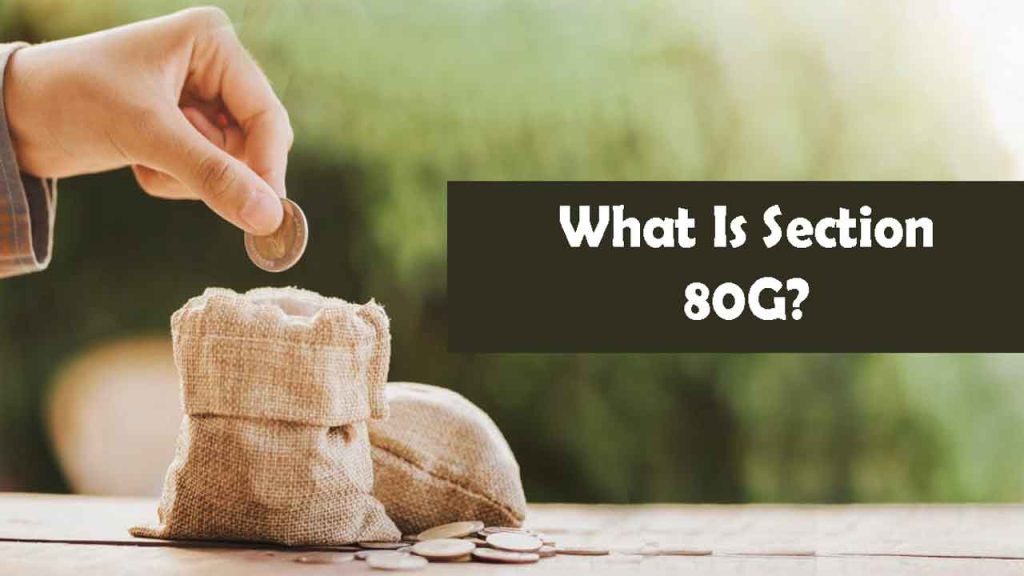The money offered to charity is deductible under section 80G of the Income Tax Act. Section 80G is in the law since FY 1967-68 and appears to be here for a long time. Several exemptions were withdrawn, but the tax break for charitable contributions seems to have spared the chopping block. The following are the primary aspects of charitable tax incentives.
According to such criteria, any individual or ‘assessee’ who renders a qualified contribution is qualified for tax deductions. This provision would not limit the deduction to individuals, businesses, or some other kind of taxpayer.
There are hundreds of trusts licensed in India which appear to be active in charitable works. Most of them seem to be real, but others are false. To ensure that just legitimate trusts receive tax benefits, the government has made it mandatory for all charitable organizations to register with the Income Tax Department. And the government has announced two forms of registrations for such a reason. Unless the trust meets the registration process will they receive the tax exemption card, also recognized as an 80G certificate?

Deductions Under Section 80G
To continue, a taxpayer seeking a deduction under section 80G must determine the amount of the contribution that counts for the deduction. He must determine the actual contribution in comparison to the qualified sum. Donations could be narrowly separated into two groups for this reason:
Donations to private trusts
The qualified number for this section will become the lesser of the two sums mentioned below.
- The amount of the donation.
- 10% of the adjusted gross total income
Adjusted gross total income can be calculated by applying the following formula –
| Gross total income (sum of income under all heads) | XXXX |
| (-) Deductions u/s 80C to 80U (except section 80G) | XXXX |
| (-) Exempt income | XXXX |
| (-) Short term capital gains on the sale of shares u/s 111A | XXXX |
| (-) Long term capital gains | XXXX |
| (-) Income covered in sections 115A, 115AB, 115AC, 115AD and 115D concerning non-resident and foreign companies | XXXX |
| Adjusted gross total income | XXXX |
For illustration – A taxpayer called Vivek has a taxable income of ₹400,000. He has contributed ₹50,000 to the Public Provident Fund and ₹50,000 to his company’s provident fund. He makes a ₹50,000 contribution to the CRY (Child Relief & You) trust. Assuming he has no further sources of revenue, his taxable income would be measured as follows.
| Gross salary | Rs 400,000 |
| Less: Deduction under section 80C | Rs 100,000 |
| Gross total income (before 80G) | Rs 300,000 |
Following his donation to CRY, his eligible amount for 80G would be:
| The actual amount of donation | Rs 50,000 |
| 10% of Gross total income as computed above | Rs 30,000 whichever is lower |
Because ₹30,000 is less than ₹50,000, the qualified number would be ₹30,000.
The next concern is how intense the real deduction will be. In the event of private trust contributions, the real value of the contribution will be 50% of the qualified sum.
As a result, in the preceding case, because the contribution is rendered to a private trust, the deduction would be 50% of the qualified sum, i.e. 50% of 30,000 = 15,000.
Donations to government trusts
In this classification, the whole amount contributed, i.e. 100% of the contribution amount, is deductible. There is indeed a lengthy list of 25 funds/institutions/purposes where the contributions will be 100% eligible.
The funds on this lengthy list have all been established by the government. This list excludes private trusts.
As a result, the 10% cap on aggregate total income after deducting all such deductions within Chapter VI-A of the Income Tax Act doesn’t really extend to this class of donations.
Must Read – What is section 80GGA?
Donations to approved research organizations
Under the heading Profits and Gains of Business or Profession, there have been specific segments for businessmen and professionals that generate money. Sections 35AC and 35CCA enable a deduction of 100% of the amount received to authorised research organisations for scientific research and rural development. The government must sanction the research institution in order to make it happen.
Donations to certain entities should be made by people that don’t have any corporate or technical profits (such as salaried individuals), and a full tax deduction could be taken under section 80GGA.



